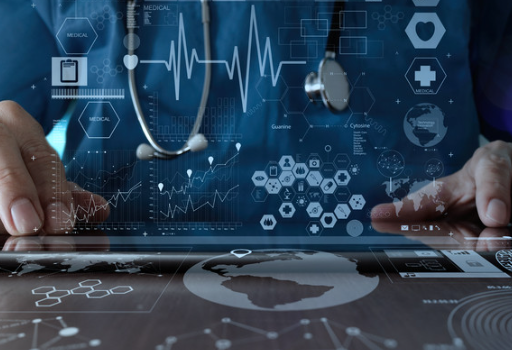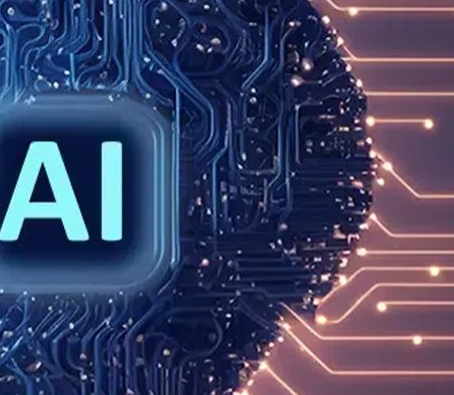
The application of data science in healthcare has made tremendous strides over the past few decades. From the initial use of computers in the 1960s for patient data management to today’s cutting-edge predictive analytics and personalized treatments, data science is reshaping the entire healthcare landscape. By leveraging Big Data and advanced technologies, healthcare organizations are improving patient care, streamlining operations, and reducing costs.
In this blog, we will delve into the role of data science in healthcare, its transformative applications, and how healthcare data scientists are driving progress in the field.
What is Data Science in Healthcare?
At its core, data science in healthcare refers to the use of sophisticated analytical techniques to interpret and extract valuable insights from healthcare data. This interdisciplinary field combines statistics, machine learning, and Big Data technologies to analyze complex medical data, enabling healthcare providers to make more informed decisions.
Unlike traditional methods of data analysis, which rely on descriptive statistics, data science incorporates predictive models that can anticipate future health trends, personalize treatments, and allocate resources more effectively. By analyzing vast amounts of data, healthcare professionals can identify patterns, detect diseases earlier, and tailor treatment plans to individual patients, all of which significantly improve patient outcomes.
Why Data Science is Crucial for Healthcare
The integration of data science in healthcare offers immense potential to improve everything from patient outcomes to the efficiency of healthcare systems. By utilizing data-driven approaches, healthcare providers can deliver better care while simultaneously reducing operational costs.
Predictive analytics, machine learning, and AI are now embedded in many healthcare practices, marking a shift toward more proactive, personalized, and efficient care. The ability to make real-time predictions and personalize treatments not only enhances patient care but also helps healthcare organizations optimize their operations.
Key Applications of Data Science in Healthcare
Data science is being applied across a wide range of healthcare domains, improving everything from disease detection to operational efficiency. Below are some of the most impactful uses of data science in the industry.
Predictive Analytics
Predictive analytics is one of the most impactful areas where data science is making a difference in healthcare. By analyzing patient data, predictive models can identify individuals at high risk for diseases, allowing for earlier interventions. For example, machine learning models are now more accurate than traditional methods at predicting hospital readmissions, leading to reduced readmission rates and better patient care.
Predictive analytics also plays a critical role in anticipating disease outcomes, allowing for timely interventions that can significantly reduce complications. Studies have shown that predictive models can forecast conditions such as diabetes and heart disease, enabling preventive measures that save lives.
Personalized Treatment Plans
Personalized medicine is another area where data science is driving transformation. By using patient-specific data, such as genetic information, lifestyle factors, and medical history, healthcare providers can develop individualized treatment plans that are more effective than one-size-fits-all approaches. This has been particularly successful in oncology, where personalized treatments have shown to improve survival rates and treatment efficacy.
Data science tools enhance the personalization process by analyzing complex data sets, helping healthcare providers identify the most suitable treatments based on a patient’s unique profile.
Disease Outbreak Prediction
Data science is also crucial for predicting and managing disease outbreaks, which is essential for public health planning. Machine learning models analyze diverse data sources, including social media, travel patterns, and epidemiological data, to predict potential outbreaks. For example, the Centers for Disease Control and Prevention (CDC) used Big Data analytics to predict and manage the Zika virus outbreak in 2016, improving containment efforts and saving lives.
Operational Efficiency
Data science is transforming the operational side of healthcare as well. Hospitals and healthcare providers use data analytics to optimize staffing, manage supply chains, and improve patient flow. For instance, predictive models can forecast patient admissions, allowing hospitals to allocate resources more effectively and reduce wait times.
Additionally, AI-driven scheduling systems have been shown to improve patient throughput and reduce operational costs. By improving operational efficiency, data science helps healthcare providers maintain high-quality care while managing costs.
The Role of Healthcare Data Scientists
Healthcare data scientists play a pivotal role in harnessing data to improve patient care and streamline healthcare operations. These professionals are responsible for collecting, analyzing, and interpreting vast amounts of data to uncover patterns and generate actionable insights. Their work helps predict patient outcomes, personalize treatments, and improve the efficiency of healthcare systems.
Key Responsibilities of Healthcare Data Scientists
- Data Collection and Cleaning: Healthcare data scientists gather data from multiple sources, including electronic health records, wearables, and clinical trials. They ensure the data is clean, accurate, and ready for analysis.
- Data Analysis: They use statistical methods and machine learning algorithms to analyze healthcare data, identifying trends and insights that help healthcare providers make informed decisions.
- Algorithm Development: Data scientists develop predictive models and machine learning algorithms tailored to specific healthcare challenges, such as predicting disease outbreaks or hospital readmissions.
- Collaboration: Data scientists work closely with healthcare professionals, ensuring that data insights are translated into actionable medical decisions.
Required Skills for Healthcare Data Scientists
To succeed in healthcare data science, professionals need a diverse set of skills:
- Statistical and Analytical Skills: A strong foundation in statistics is essential for analyzing complex medical data.
- Programming Skills: Proficiency in languages like Python, R, and SQL is necessary for data manipulation and analysis.
- Machine Learning Knowledge: Understanding machine learning techniques is crucial for developing predictive models.
- Domain Knowledge: Familiarity with medical terminology and healthcare regulations is vital for applying data science in a healthcare context.
- Communication Skills: Data scientists must be able to communicate complex data insights to non-technical stakeholders, such as doctors and policymakers.
The Growing Demand for Healthcare Data Scientists
The role of healthcare data scientists is becoming increasingly vital as the industry relies more on data-driven decision-making. The demand for these professionals is expected to grow rapidly, reflecting the increasing use of data science in healthcare. By 2032, the need for data scientists in healthcare is projected to increase by 35%.
Conclusion
Data science is undeniably transforming the healthcare industry, from improving patient outcomes to optimizing operational efficiency. As healthcare systems continue to embrace data-driven practices, the role of healthcare data scientists will become more critical than ever. If you’re passionate about making a difference in healthcare, pursuing a career in data science can provide you with the opportunity to play a key role in this exciting and fast-evolving field.












